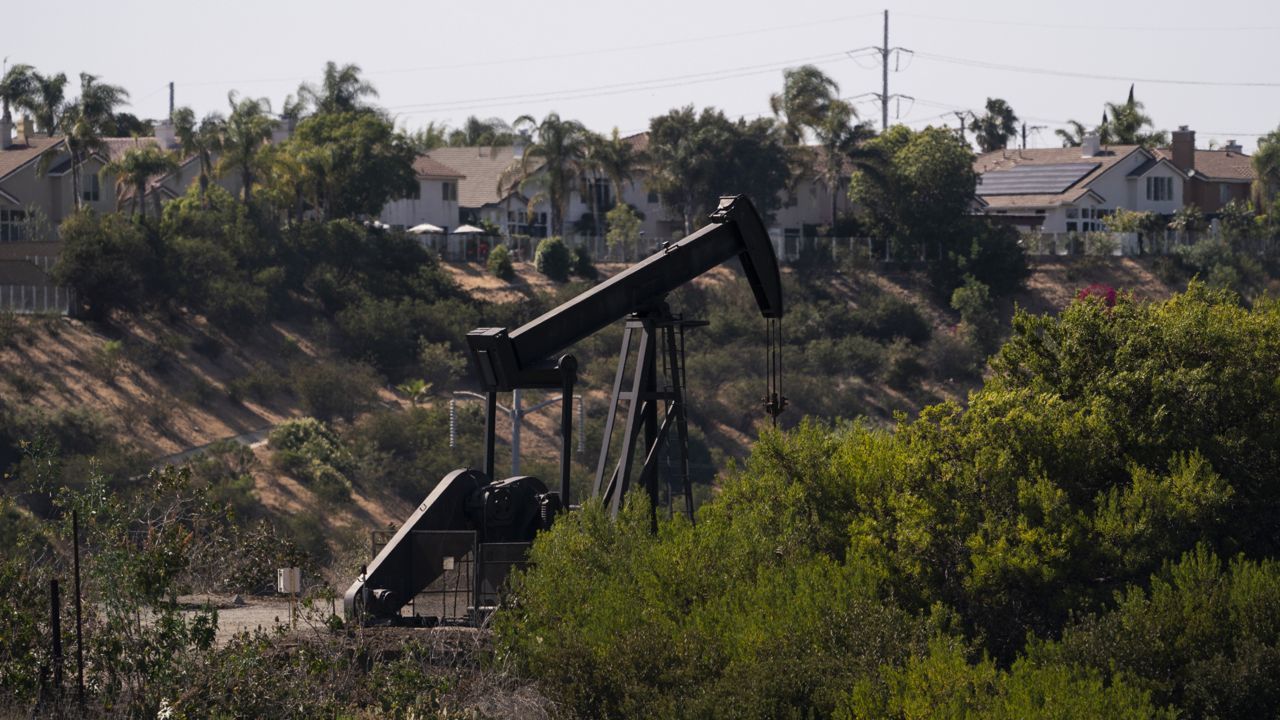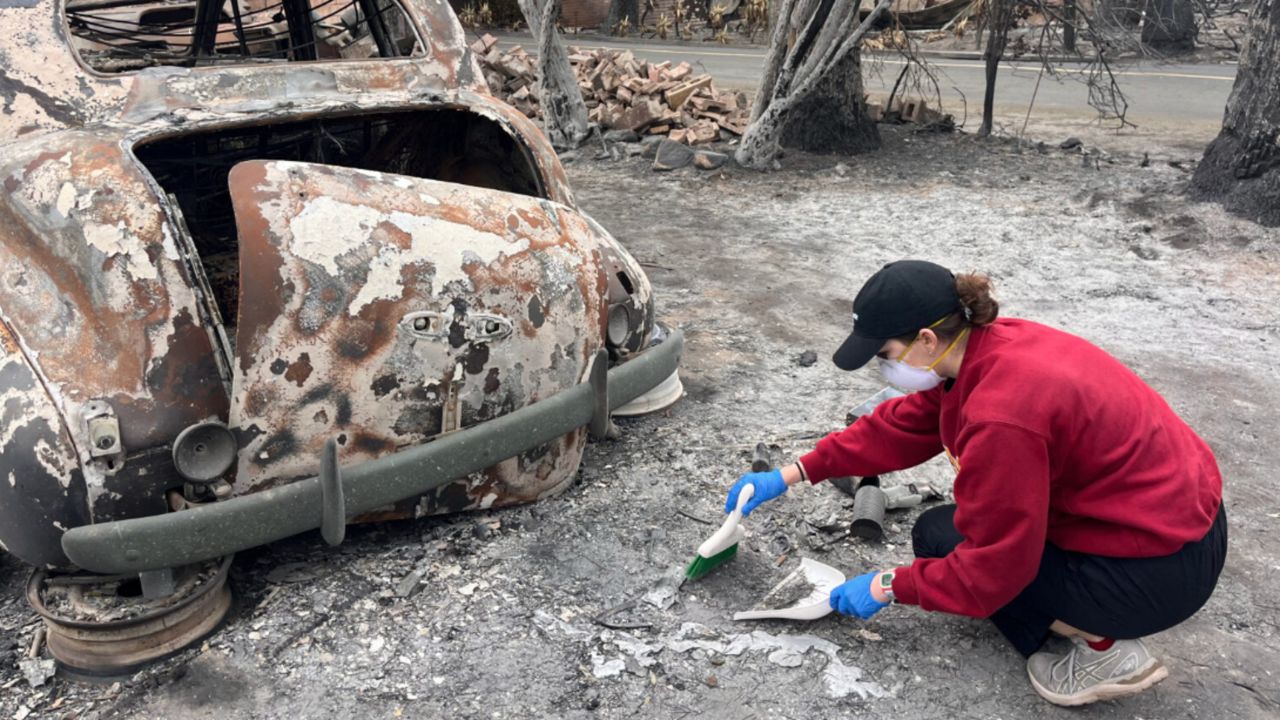LOS ANGELES (CNS) — The Los Angeles County Board of Supervisors voted Wednesday to ban new oil and gas wells and phase out existing wells in unincorporated areas.
Supervisor Holly Mitchell, who recommended the move, said the negative health effects of such operations are now well-established.
"The scientific and health findings are clear," Mitchell said. "There are short-term and long-term health effects associated with living near active and inactive oil wells. These include decreased lung function, asthma, cardiovascular disease, low birth weight and other reproductive health impacts."
Over half of the oil wells in unincorporated areas of LA County are in the 2nd District, which Mitchell represents, and nearly 60% are concentrated in the Inglewood Oil Field, which the Sierra Club calls the largest urban oil field in America.
"L.A. County has had a long history of oil and gas development and poor land use decisions, which has resulted in oil and gas operations occurring too close to places where people live, work, play, go to school and pray," Mitchell said. "Many residents may not even realize it, but tens of thousands of people in L.A. County live in close proximity to an oil well and 73% of them are people of color."
A county strike team identified 1,046 active wells, 637 idle wells and 2,731 abandoned wells within the county's unincorporated areas, according to a memo to the board dated June 3, 2021.
Lorenzo Antonio Gonzalez, a doctor with Physicians for Social Responsibility, said it was time to put health first.
"Oil wells are everywhere, from my neighborhood in north Inglewood to the backyard of my patients in Wilmington," Gonzalez told the board, before echoing Mitchell's list of related health problems. "We need to prioritize our neighborhoods. This is foundational."
Supervisor Janice Hahn praised the plan as "a framework for how we transition from dirty fossil fuels to clean energy and make sure we bring our labor partners with us."
Yet Hahn also said labor leaders were anxious and nervous about how the plan would be carried out as she pressed for their involvement in the process.
Supervisor Kathryn Barger echoed those concerns, saying she wanted to be sure there was ample time to transition workers into new jobs.
Mitchell said she had calls with labor representatives on Tuesday.
"We have heard from labor, and we have incorporated the vast majority of their amendments," she told her colleagues.
Supervisor Sheila Kuehl — who co-authored the motion — said the goal was to provide a path to new "clean energy" jobs for oil and gas workers in partnership with union leaders.
However, Kuehl also said it was a matter of balance.
"I really care about people who work in the county. They are my ... constituency. But you can't say, `I need to make everybody unhealthy in order to keep my job,"' she said. "We are going to do everything to make certain that you have good work, but it isn't the kind of work that's making everybody sick. That is what `just transition' is all about."
Giancarlo Rubio with the Valley Industry & Commerce Association was among those who spoke out against the policy.
"The proposed recommendation would negatively impact our local economy and jeopardize good-paying, middle-class jobs for thousands of residents in the Valley and throughout L.A.," Rubio said, warning that it could cost billions. "Shutting down oil and gas production will make us even more dependent on foreign oil ... (imported) from countries that don't hire Californians, pay California taxes or care about our rigorous environmental regulations and health protections."
Barger pointed out that even as the county is planning to shut down oil and gas extraction sites, the board is continuing to support much-needed housing development that is dependent on natural gas.
Assemblyman Isaac Bryan, D-Baldwin Hills, urged the board to pass the motion in order to "do this work in solidarity at the state level," but emphasized the need to move carefully, estimating it would affect nearly 30,000 oil field workers.
Gov. Gavin Newsom has called for a statewide phase-out of oil extraction by 2045.
The board already has a set of recommendations from a working group established in September 2020 to come up with a strategy to plug and appropriately abandon old wells that could otherwise cause pollution.
A related motion approved by the board Wednesday called for hiring a consultant to review the effects on the fossil fuel industry and broadening the scope of support for transitioning workers.










